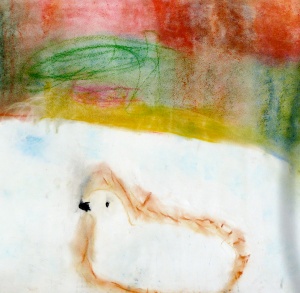 In a recent article in the New York Times it was noted that divorce, just like the loss of a spouse, was significantly associated with decreased health (even though with divorce one is presumably “losing” someone one no longer wants to be with).
In a recent article in the New York Times it was noted that divorce, just like the loss of a spouse, was significantly associated with decreased health (even though with divorce one is presumably “losing” someone one no longer wants to be with).
And on the other hand, the article concluded with: “None of this suggests that spouses should stay in a bad marriage for the sake of health. Marital troubles can lead to physical ones, too.” The article cited scientists at Ohio State who studied the relationship between marital strife and immune response. They found that “after a marital conflict, the wounds took a full day longer to heal. Among couples who exhibited high levels of hostility, the wound healing took two days longer than with those who showed less animosity. ‘I would argue that if you can’t fix a marriage you’re better off out of it,’ said Janice Kiecolt-Glaser, an Ohio State scientist who is an author of much of the research. ‘With a divorce you’re disrupting your life, but a long-term acrimonious marriage also is very bad.’” [for the full article see: (http://tiny.cc/uMIO0)]
So, if you’re damned either way… and if you set your top-most goal as the well-being of your child or children, then it is doubly important to take measures to protect and enhance your health, especially if you have suffered a loss of a spouse, have been divorced or find yourself in an acrimonious relationship.
Additionally, divorce leads to economic consequences, which add to stress and no doubt impact our health. And while it may be easier said than done, finding a way to be happy and healthy is one of the kindest things we can do for our kids.
Therefore, today is a good day to consider forgiving those who have hurt us. From people we love who have died on us, to people we once loved and have grown to resent or even detest, it serves to keep in mind that people who feel good about themselves are generally kind.
Yet we must acknowledge our hurts and wounds (even if they heal more slowly under strife and acrimony, they don’t heal at all if they are denied and kept under wraps). Explaining (i.e. those who are cruel or cluelessly self-absorbed) is not the same as excusing; however, if we forgive the transgressions of others, we free the energy we had been using for bitterness and free it up for more effective uses (from making more money, to cultivating healthier and more loving relationships). After forgiving, we must also set, and keep, a boundary against further hurt, not by insisting that mean people be nice, but in recognizing their chronic pain and limitations. Perhaps we might at least contemplate what we would do if we had all the strength, time and money we could hope for—as that imagined course of action reflects our best self-esteem path. If we can even employ some of that (i.e. having a thicker skin and not “taking the bait” on circular and destructive arguments) we move in a healing direction.
Kids are a great pretext to rise to our best Self level of functioning… and thus to forgive. If we behave as if our self-esteem were very solid (i.e. spending time with friends who are capable of reciprocity, and thus able to nourish us, while being patient and understanding with our children’s current levels of developmental capacity) we enhance our thinking, our feeling and our functioning.
So, whether it’s going to take a few days, weeks or months to heal our wounds, let’s dedicate today to forgiving those who have hurt us—in honor of all our collective children.
Namaste, Bruce



{ 3 comments… read them below or add one }
First, let me say, “Thank You,” for this amazing, inspiring, heartwrending blog. I need this…
And secondly, in response to today’s post, “How did you know?!”
Any reading suggestions on how to forgive?
Thank you so much, again, for reminding me of the hard/good work I am doing as a parent, and inspiring me to keep trying.
Peace,
Beth
While not directly about forgiveness, Victor Frankl’s book, “Mans’ Search for Meaning,” is quite an amazing book for cultivating a mind-set that would lead naturally toward forgiveness. Thich Nhat Hahn’s books, such as “Being Peace” would probably also be very useful.
Thank you for this. I know of a couple who will greatly benefit from your words. Can’t wait to pass this one along. It’s also a good reminder about how we should all focus our energy when dealing with difficult people whether in our family or outside our circles.